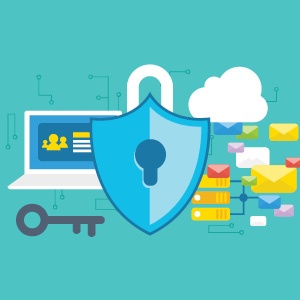Most exporters of technology products have learned in the past, either through good corporate governance or a knock on the door by their local export control enforcement authority, that encryption is a sensitive subject (pun intended).
Within the European Union, most items incorporating encryption are classified as dual-use goods (when not Military items) and are subject to Export Control.
Within the EU, French authorities extend control of encrypted items beyond the export process to import as well. Cryptographic items can move freely within French territory. However, supplying, importing, or exporting encrypted items are regulated activities.
Encrypted items are defined in French law (Article 29 of French law 2004-575) as any hardware or software designed or modified to transform data, whether it is either information or signals, by secret conventions or to carry out the inverse operation with or without secret conventions. The main purpose of these cryptographic functions is to guarantee the security of the storage or the transmission of data while ensuring their confidentiality, authentication, and integrity.
Encrypted items are subject to either a declaration or an authorization process, prior to being supplied, imported or exported to and from France. The Agence Nationale de la Sécurité des Systèmes d’Information (ANSSI) records these declarations and reviews the authorization requests.
In order to import a cryptographic product into France, including from another EU member state, prior authorization is required from ANSSI. Depending on the type of product being imported, authorization can take one to four months before importation is allowed. Thus, suppliers and importers must work closely together to ensure that the appropriate documentation is obtained to successfully import the product.
To export cryptographic product from France to destinations outside the European Union, exporters must, of course, determine a valid ECN classification for the item, if classifiable under the EU dual-use list and apply for the appropriate export license or provide the appropriate notification to the authorities based on the destination and license options for the export.
Also, don’t forget the US rules! If your product is US origin or has transited through the US, you may need a US export license to move the goods between two non-US locations.
As always, never hesitate to reach out to Tradewin. Combined, our skilled team of Customs brokers, lawyers, accountants and other professionals possess more than 400 years of experience. Tradewin is ready to take on any export control-related challenges or concerns you may have.
![]()






.jpg)

